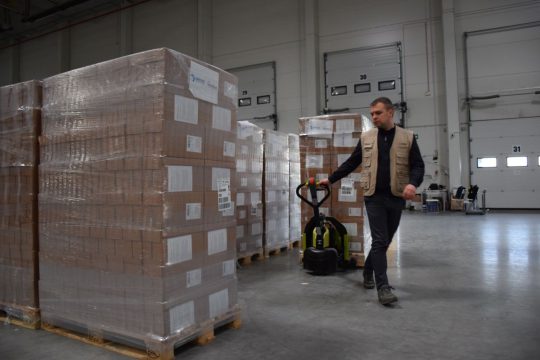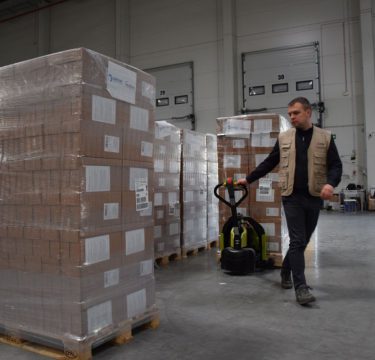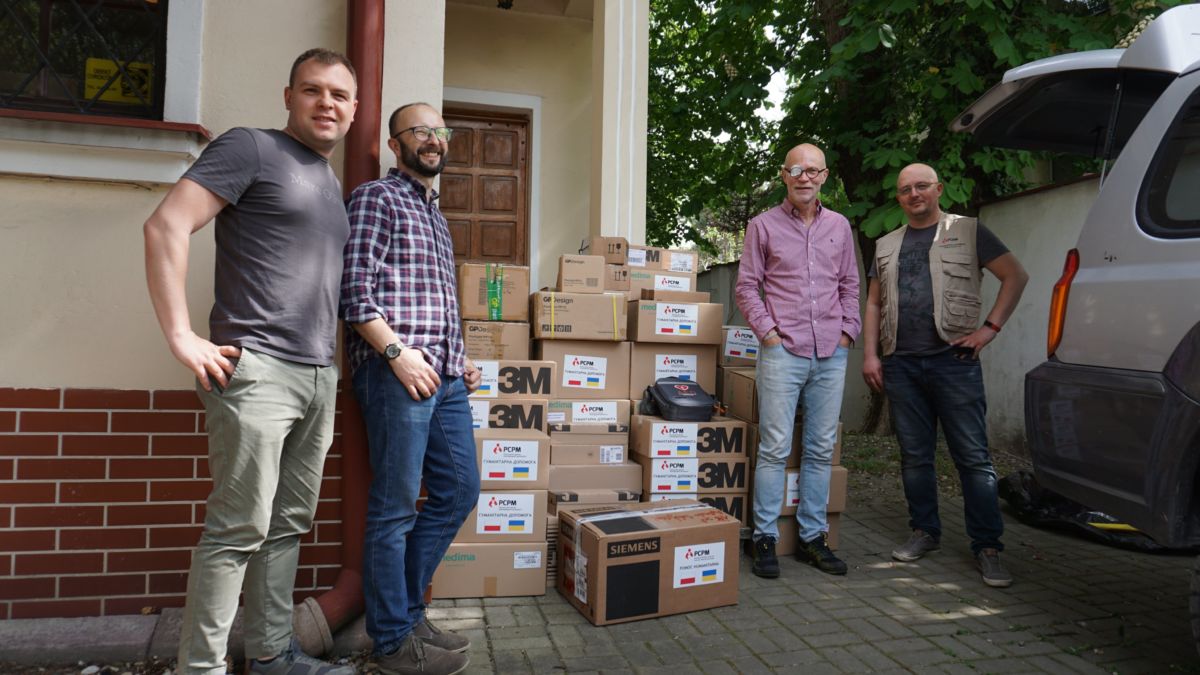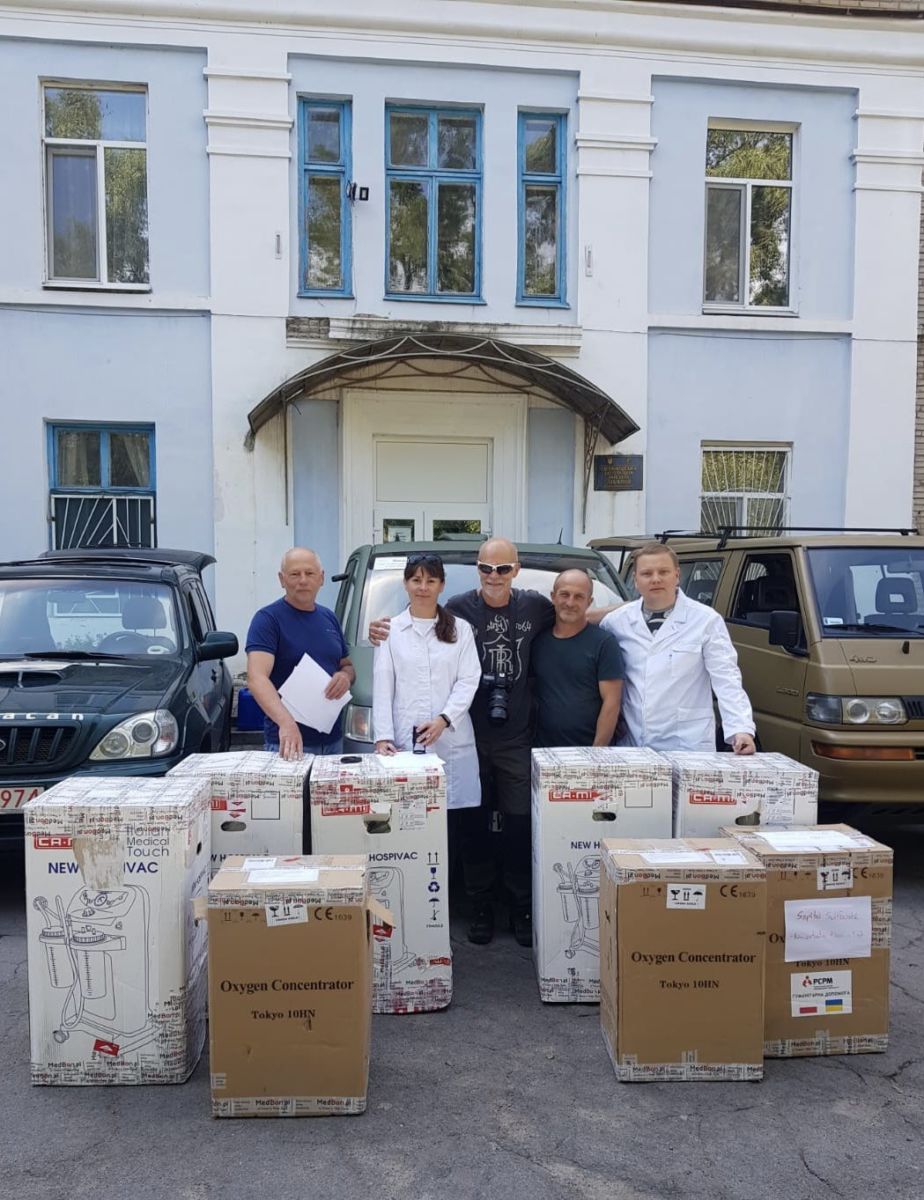Not only medicines and band-aids – the PCPM Foundation distributes medical equipment to Ukrainian hospitals


The PCPM foundation previously helped with medical equipment deliveries to Kyiv, Zhytomyr, Konotop, Korop, and Uman. The implementation of needs targeted to medical third parties (such as hospitals or clinics) has been a major challenge for the NGOs supporting them. Oftentimes from the moment of receiving the list of needs to the end of the process a month passes – Tomasz Lipert – PCPM Medical Transport Coordinator points out. To pack a full truck with humanitarian aid you need to attach over thirty palettes to the semi-trailer. As the two PCPM’s logistics department workers Łukasz Saderski and Roman Havrylyuk informed, truck transport is the most economic delivery option. The truck capacity is about thirty-three palettes, so sometimes it can be difficult to deliver the items on time – Roman said.
Sometimes it turns out that medical equipment delivery is not possible at a certain time. In this scenario, the transport to Ukraine goes by smaller vehicles such as vans. A journalist and reporter Jacek Hugo-Bader helped the Polish Center for International Aid twice in delivering medical gear to Ukraine.

On how the order-complementing process goes, Tomasz continued “First of all, we need to read the list, get to know what kind of hospital contacts us for assistance. Once we do that, we ask the facility to send such need-list again, but in an electronic form” – he said. Ordering all products firstly requires dividing them by items. To sort medicine, equipment, band-aid, and single-use items into separate groups. ‘The organization ‘Apotheker one Grenzen’ (‘Pharmacists without borders’) helped with sorting medication. We also submit speared orders buying other medical equipment” – Tomasz informed. The order procedure is time-consuming because each item needs to come from a different supplier, which does not allow bulk orders. Suppliers manage one product at a time – one ultrasound equipment, another ECG. ‘While complementing medicine you need to pay attention to details. From time to time we note a chemical substance, for example, paracetamol, but we do not have details about the number of boxes, and in what form: cone cells, pills, liquid substances used in needle shots, or other forms. You need to every single detail’ – he pointed out firmly. A similar issue occurs with single-use products. ‘We see that medical tubes are a vital need, but we must know what kind because there are so many options to choose from. The order needs to be specific. We do not know if the demand is for a throat-nasal tube, for intubation, etheric throb type, or another kind. That shows you how important clarification is in this profession – he pointed out.

Tomasz points out that the described challenges are only a tiny part of the whole procedure. The Polish Center for International Aid shed a light on significant shortages in the availability of insulin in Ukraine. The country’s most significant factory was destroyed in the first weeks of the war. ‘The delivery of insulin requires refrigerated transport and there are other critical issues related to it for diabetics. When we saw that every hospital was asking for it, we alerted the WHO (World Health Organization) about the issue. The supply of such a vital medical component cannot depend on NGOs alone. The institutions ought to solve this problem – the specialist said.
Finally, the coordinator, asked about his projection of the need for medical supplies in Ukraine, replied that the matter depends on the further development of the war. ‘Probably, over time, a different kind of assistance will be needed than is provided now. Currently, where there are direct clashes, battlefield medical assistance is needed – bandages, wound stitching kits, and the like. In the later phase of the conflict, people who have lost limbs are going to need rehabilitation to return to normal functioning. The need for appropriate orthopedic equipment will, and the supply of such important medical equipment cannot depend solely on NGOs’.
From the start of the war until the end of June, the Polish Center for International Aid sent 2.5 tons of medical gear to Ukraine.
Follow us on social media:
We publish current information on the aid provided by the PCPM Foundation on Twitter.
Foundation’s official profile on Instagram – @fundacjapcpm
Foundation’s official Facebook profile – Polish Center For International Aid
Support Ukraine aid with donations via pcpm.org.pl/ukraina